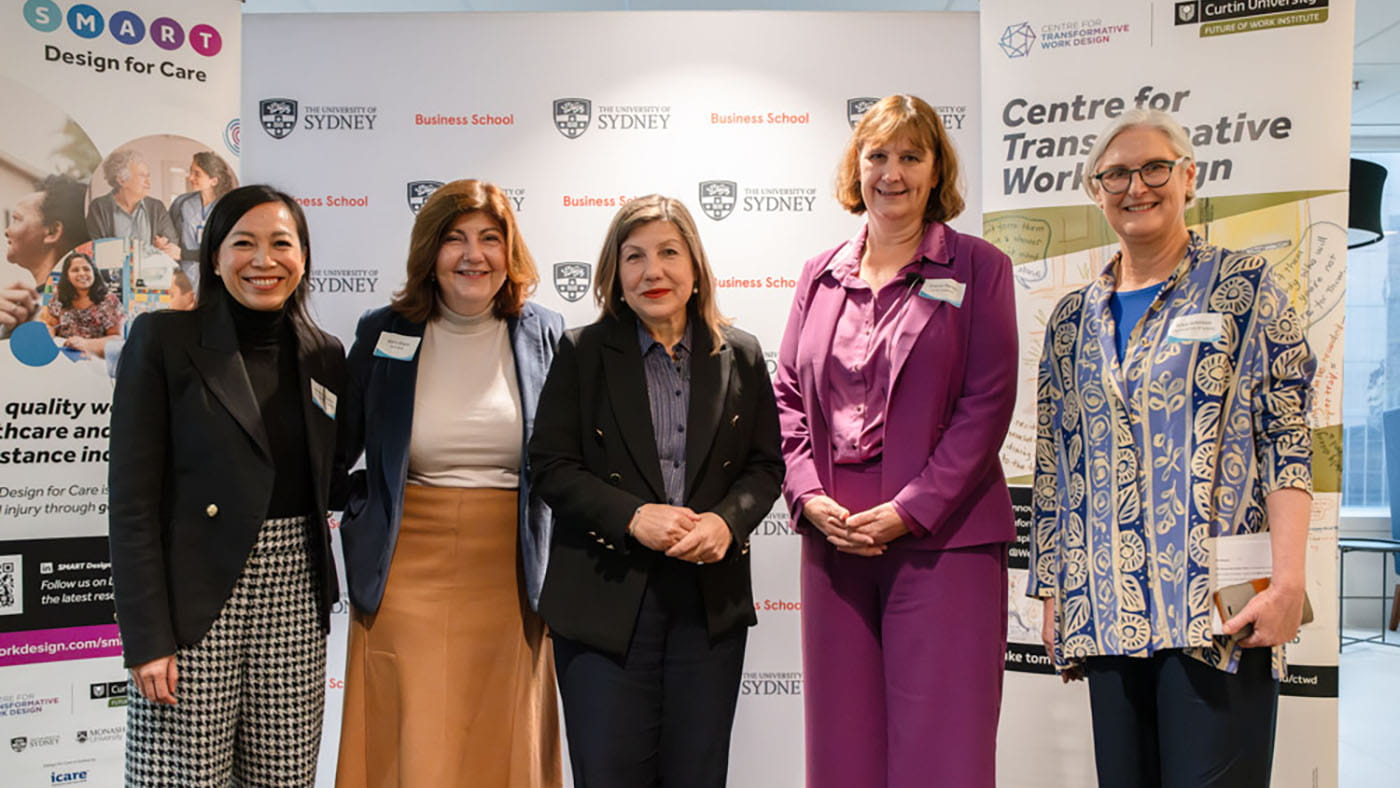New report highlights work design strategies to improve workers' mental health and wellbeing
The Design for Care research project is led by Curtin University, the University of Sydney and Monash University and funded by icare.

Pictured (left to right): Associate Professor Helena Nguyen, icare Group Executive Workers Compensation Mary Maini, Minister for Industrial Relations and Minister for Work, Health and Safety The Hon Sophie Cotsis MP, Professor Sharon Parker and Associate Professor Anya Johnson.
A new report launched this month by the Design for Care research project surveyed 1,300 healthcare and social assistance workers over an 18-month period to better understand whether SMART (Stimulating, Mastery, Agency, Relational, Tolerable) work design strategies could improve employee job satisfaction, mental health and wellbeing.
The report found 37% of workers reported they did not have enough time to do their work, 40% said their jobs were highly emotionally demanding, 22% reported high work-related burnout, and 24% said they don't spend enough time with their family.
Project lead and John Curtin Distinguished Professor Sharon Parker, from Curtin's Future of Work Institute, said: "Individuals with high SMART work design, compared to those with moderate or low SMART work design, report lower levels of burnout and mental ill-health, lower intention to leave, and higher job satisfaction."
"Redesigning work involves changing systems, roles and tasks in a way that improves the wellbeing and mental health of employees. The findings from this project will help create tailored recommendations for the Healthcare and Social Assistance industry to embed SMART work design into organisations as a preventative and sustainable strategy for mental health and wellbeing," Professor Parker said.
The latest set of insights from the Design for Care research project are made available to industry groups and employers to align to icare's long-term goal to deliver work design interventions and resources to half a million Health and Social Assistance workers in New South Wales.
Mary Maini, icare's Group Executive for Workers Compensation said: "An increasing body of evidence from Design for Care has demonstrated that poor work design is a common factor behind the rising rates of anxiety, burn-out and depression among our healthcare and aged care workers."
"They've supported Australians throughout the COVID epidemic, and now deserve our support in return. That's why icare are looking to pilot innovative work practices that will lower the workplace risks contributing to psychological injury."
This report follows on from the Design for Care project's first report, which showed healthcare and social assistance workers were twice as likely to file a workplace compensation claim for psychological injuries with nurses, midwives, ambulance officers and social workers revealed as highly impacted jobs.

